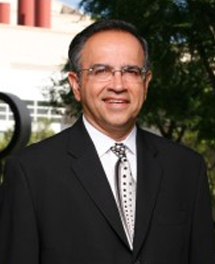Class Overview
This module will help Israeli business people understand and develop alternative marketing strategies for U.S. markets. We will focus on organic growth, when companies grow through existing or new products or services in existing or new markets. Discussions will cover securing new markets through expanding geographically and targeting new segments (or customers). Learning is facilitated through a combination of readings, case discussions, and an assignment.
Text, Articles, and Cases*
- “What High Tech Managers Need to Know About Brands,” Harvard Business Review, July August 1999.
- Biopure, Harvard Business School Case 9-598-150.
- Siemens CerberusEco in China: Introducing Low-frills Products in a High-quality Company, European School of Management and Technology Case ESMT-311-0123-8
*Please read items 2 and 3 before Monday’s session and briefly write your thoughts on each of the questions on the case (see below). This is important for the group discussion. Items 1, 2 and 3 can be ordered from www.hbsp.com (Harvard Business School Publishing).
Monday, January 13
8.00 – 12.00 Introduction, Alternative Growth Strategies, Honda Motor Car Company
12:00 – 13:00 Lunch
13:00 – 14:30 Biopure
- How do you assess Biopure’s potential in the human market? The animal market?
- What are the biggest obstacles to Biopure’s success in the human market? The animal market?
- How might Oxyglobin be a threat to Hemopure? How might it be an asset to Hemopure?
- What should Biopure do regarding the commercial release of Oxyglobin? If they release, what price should they set? How should it be distributed?
14:45 -17:00 Siemens CerberusEco
- What general options does Siemens have to fight emerging low-cost rivals for fire safety and security in China?
- How would you assess Carsten Liesener’s plan for China?
Tuesday, January 14
8:00 – 12:00 Customization of Marketing Strategies and Group Discussion
8:00 – 8:15 We will make a list of Israeli products or services for export. The participants will be divided into groups. Each group will select a product or service offered by a group member firm for export.
8:15 – 10:00 Dr. Currim will lead a brainstorming session on key questions and methodology for development of export plan
10:00 – 11:00 Group Develops Marketing Strategy for Israeli Exports to the U.S.
Each group will come up with:
(a) Key questions to be answered in order to judge the export potential of the product or service, to be summarized on 1-2 transparencies, and
(b) An outline of a process or methodology for answering the key questions, to be summarized on 1-2 transparencies.
11:15 – 12:00 Group Presentations and Discussion
Each group will present the output of the 9:45-10:45 session, followed by a discussion on how the questions and methodology can be enhanced (15-20 minutes per group).
Pre-Readings
Text, Articles, and Cases
- “What High Tech Managers Need to Know About Brands,” Harvard Business Review, July August 1999.
- Biopure, Harvard Business School Case 9-598-150.
- Siemens CerberusEco in China: Introducing Low-frills Products in a High-quality Company, European School of Management and Technology Case ESMT-311-0123-8




















































































